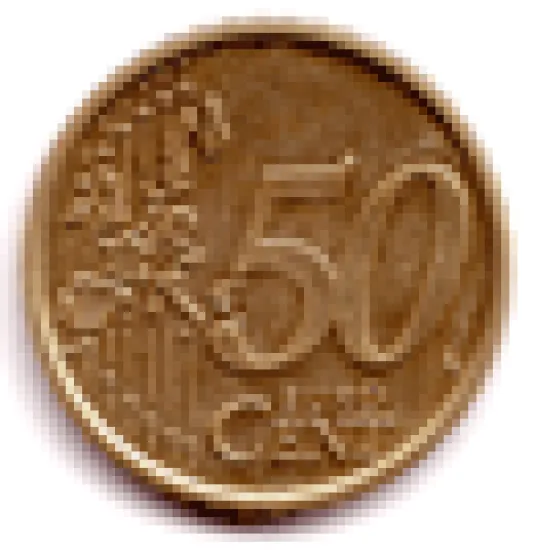Hedge fund managers are notoriously demanding and secretive when it comes to trading. Our second annual survey of hedge fund traders identifies the brokerage firms and electronic markets that serve them best.
Click here to see the ranking.
Technology has an impact on almost every aspect of modern life, and equity trading is no exception. The percentage of trading volume of New York Stock Exchange-listed securities that actually takes place on the Big Board has fallen to less than 75 percent, the lowest level in the nearly 30 years since the exchange began tracking that figure. Investors increasingly are turning to electronic alternatives like Instinet, Liquidnet and Goldman Sachs Group's Rediplus because they are faster and cheaper than traditional exchanges and provide a higher degree of anonymity.
"The trading landscape is changing dramatically," says Brian Fagen, head of North American electronic trading sales at Morgan Stanley. And there's no turning back, he says. The NYSE's $9 billion merger with Chicago-based electronic trading firm Archipelago Holdings, which is expected to close early this year, will likely increase the move toward electronic trading.
Regulatory changes introduced over the past year, including the Securities and Exchange Commission's new Regulation NMS, or national market system, could give investors more confidence to trade electronically. Reg NMS requires U.S. equity markets to provide investors with prices equal to or better than the best bid and offer no matter where that price is quoted -- on a traditional exchange or on an electronic venue like Instinet.
Hedge funds are driving many of the changes. Although they represent just 5 percent of all U.S. assets under management, they account for about 30 percent of all U.S. equity trading volume, estimates Brad Hintz, a brokerage analyst at Sanford C. Bernstein & Co.
The funds make demanding clients. Although they can differ widely in investment strategy and style, they are generally more exacting than traditional institutional managers when it comes to the speed of trade execution and the ability to operate in multiple asset classes, says Octavio Marenzi, chief executive officer of Boston-based consulting firm Celent. "Hedge funds want quality execution in terms of price, speed, fill rate and anonymity," he says.
That's not to say that human traders are being arbitraged out of the equation. In fact, the opposite is true. Hedge funds want to know that their brokers are working to get their orders filled at good prices while maintaining their anonymity and providing market color and information.
"It's harder and harder to get executions close to the market price in decent size," says one long-short equity trader. "As the business becomes more electronic, the human factor becomes more and more important."
For Steve Wilson, director of trading at Context Capital Management, a Greenwich, Connecticut-based convertible-arbitrage shop, it all comes down to trust. "I don't want to be entertained by a sell-side trader," he says. "If I give you my order, I want to know that you're doing what I want."
So which firms are doing the best job of servicing hedge funds' trading needs?
To find out, Alpha retabulated the results of the survey of head equity traders at institutional money management firms that was published in November 2005 in our sister publication, Institutional Investor, using only votes cast by the hedge funds that participated. Respondents were asked to rank broker-dealers on the quality of their execution for both NYSE- and Nasdaq Stock Market-listed equities and to rank the best electronic communications networks and alternative trading systems (see the Hedge Fund Equity Trading). In addition, we asked their opinion on various aspects of trading, such as firms' market know-how and the quality of their technology. (For more on methodology, click here.)
Lehman Brothers dominates the trading execution rankings, as it did in the broader institutional manager poll, finishing No. 1 among both NYSE and Nasdaq securities trading firms. Hedge funds applaud Lehman's efforts to provide them with the technology to predict trading costs under various scenarios before a trade is completed, and with the tools to do posttrade analysis. They also value Lehman for its traditional trading desk services. Hedge fund respondents rank the firm best in market knowledge, trading intelligence, the ability to work an order and minimize its market impact and the consistency of day-to-day capital commitment.
Lehman isn't resting on its laurels. During the past year the firm has added 500 companies to its Nasdaq coverage, which now totals about 1,750 stocks. Lehman also has maintained its willingness to commit its own capital to counterparty trades during a period when most brokerage firms have been reducing their capital commitments to equity trading because they can earn higher returns from other activities, such as proprietary trading.
Morgan Stanley, No. 2 in both NYSE and Nasdaq trading, enjoys the biggest improvement from the broader survey. The firm moves up three places for NYSE-listed stocks and one place for Nasdaq securities -- an indication that hedge funds in particular value its trading capabilities. "Morgan traders are very responsive to the client," says a long-short equity trader. Like Lehman's traders, they are known for their industry and market knowledge and their "feel" for how to work a trade.
Morgan Stanley organizes its traders by sectors, much as it does its research staff. One way the firm tries to add value is by bringing clients, analysts and traders together over dinner to discuss their sectors.
"Our focus is on helping clients navigate the spectrum of choices to get to the best execution," says electronic trading sales head Fagen. "Information flow is a core value proposition."
Traders praise Morgan Stanley's Passport Web-based trade execution and order management platform, which provides hedge fund clients -- as well as traditional money managers -- with pretrade analytics, posttrade analysis and trading algorithms, all in one system. "Passport allows our clients to utilize our technology on their own," explains Fagen. Traders say Morgan Stanley is continually upgrading Passport; recent enhancements include improved smart order routing and the ability to trade option spreads.
Hedge fund voters also give high marks to Bear, Stearns & Co., which moves up one and two places from the broader poll to No. 3 in both NYSE and Nasdaq trading. Traders praise the firm for its personal touch. "Bear's traders do a great job summarizing market color," says a trader at a multistrategy hedge fund. Bear Stearns also wins high scores for its ability to execute orders, market knowledge and trading intelligence.
Among NYSE trading firms, Merrill Lynch & Co. and Citigroup round out the top five; Citigroup and Goldman, Sachs & Co. are No. 4 and No. 5, respectively, for Nasdaq securities firms. Goldman does better among hedge fund traders than in the overall voting for both NYSE and Nasdaq trading.
Merrill, which cut its market-making activities in 2002 from 10,000 Nasdaq and over-the-counter stocks to 2,400, sees the steepest decline, dropping six places from the broad poll to No. 8 in Nasdaq trading. The firm scores poorly among hedge fund traders when it comes to its ability to minimize a trade's market impact and the quality of its trading technology.
Brokerage firms are still feeling the economic pinch of reduced trading activities by their traditional long-only money managers -- thanks in part to the mutual fund scandals of the past three years and the sideways U.S. equity markets -- as well as pressure from big institutional investors like Fidelity Investments to reduce trading costs. "The sell side is a lot different today than it was four years ago, when research services were highly valued and participating in hot new issues was a big-money play," says Context Capital's Wilson.
Brokerage firms are turning to hedge funds like Context to make up for lost revenue. "For Wall Street, hedge funds are replacing traditional asset managers because they're more active traders," says Karan Sampson, director of hedge fund marketing at consulting firm Greenwich Associates. In response to the growth in hedge funds, brokerages are increasing their ability to trade small- and midcap stocks and international equities, she says, as well as providing technology-driven services like algorithmic trading.
Declining commission rates give Wall Street firms little choice but to cater to hedge funds and their higher-volume trading strategies. Unlike long-only managers, which typically specialize within an asset class, hedge funds are able to trade freely across markets and asset classes -- and they do. For them, having to make multiple phone calls to different trading desks within the same firm can be cumbersome and time-consuming. Using electronic systems, they can trade simultaneously in different asset classes or markets.
Electronic trading systems also provide anonymity, which is especially important to bigger hedge funds making potentially market-moving trades. They don't want competitors to see their trades and follow on or bet against them. As a result, many hedge funds use algorithmic trading systems, which break up trades into smaller, less noticeable chunks and spread the volume across a variety of markets and electronic platforms. According to a September 2005 research study by Greenwich Associates, 91 percent of hedge funds use self-directed electronic trading venues for NYSE trades, up from 71 percent two years earlier.
"It's much easier to trade yourself rather than going through a broker," says the head trader at a Midwestern hedge fund that primarily uses the Rediplus system. "If you use a brokerage firm, there are lots of variables and wait time while their traders get back to you."
Hedge fund traders rate Rediplus best among electronic trading platforms and communications networks. Impressively, Rediplus jumps four places from the broader II poll of buy-side traders to the top spot in the hedge fund survey. Created a decade ago by New York-based broker-dealer Spear, Leeds & Kellogg as an electronic trading tool for the firm's customers, Rediplus is popular among hedge funds because it provides them with a single Web-based interface for trading multiple asset classes.
"Traders are multitasking," says Jana Hale, global head of algorithmic trading at Goldman Sachs, which acquired Rediplus when it bought Spear, Leeds & Kellogg in 2000. "With Rediplus, traders don't have to be familiar with six or seven systems."
Greg Tusar, head of U.S. electronic trading at Goldman, says the system now features portfolio trading; futures and options; and European, Asian and Canadian stocks. Rediplus is also integrated with Goldman's prime brokerage offering and can be customized so traders have quick access to the markets or features they use most.
Instinet places second among hedge fund voters, up one spot from the broader survey. Its ECN, which was introduced in 1969, is valued by hedge funds for its high volume and its proprietary pool of shares, which includes continuous block crossing trading. Instinet typically trades 100 million to 110 million shares a day. "People like us, with larger pools of liquidity, have a competitive advantage because we can give clients better fills with smaller market impact," says Michael Plunkett, president of Instinet, North America, in New York.
Like Instinet, Liquidnet operates a private crossing network for institutional traders. The New York-based firm ranks third among hedge fund voters, two places lower than its ranking in the overall survey. Still, Liquidnet wins praise from hedge fund investors looking to trade large orders. Liquidnet has had an average execution size of almost 42,000 shares since its April 2001 inception, and more than 90 percent of its trades have been completed between the bid and offered prices.
One of the biggest draws of electronic trading is cost: It is significantly cheaper to trade electronically, not only because there are no human hands involved in the trade but also because faster execution can lead to better pricing. "The drive for direct market access as a way to reduce explicit commissions began in the late 1990s and 2000 as returns in the market became more difficult to achieve," says Goldman's Hale. Commission rates for electronic trading can be as low as a half penny a share, compared with agency full-service rates of four to five cents, she says. The Greenwich Associates survey found that hedge funds paid an average of 1.9 cents a share electronically, compared with 4.3 cents for NYSE agency trades.
The NYSE's merger with Archipelago, the No. 4-ranked execution venue, will further change the trading landscape. The move creates a hybrid market -- one that is both floor-based and electronic -- giving the NYSE the tools to recapture order flow that has been steadily migrating to electronic venues. The merger also raises speculation that the NYSE will one day become an all-electronic market, following the pattern of European and regional U.S. exchanges that have done away with floor operations entirely.
As the future unfolds, technology will continue to shape the marketplace. "The more sophisticated traders are now almost programmers," says Celent's Marenzi. "They use technology to try to beat the market."






